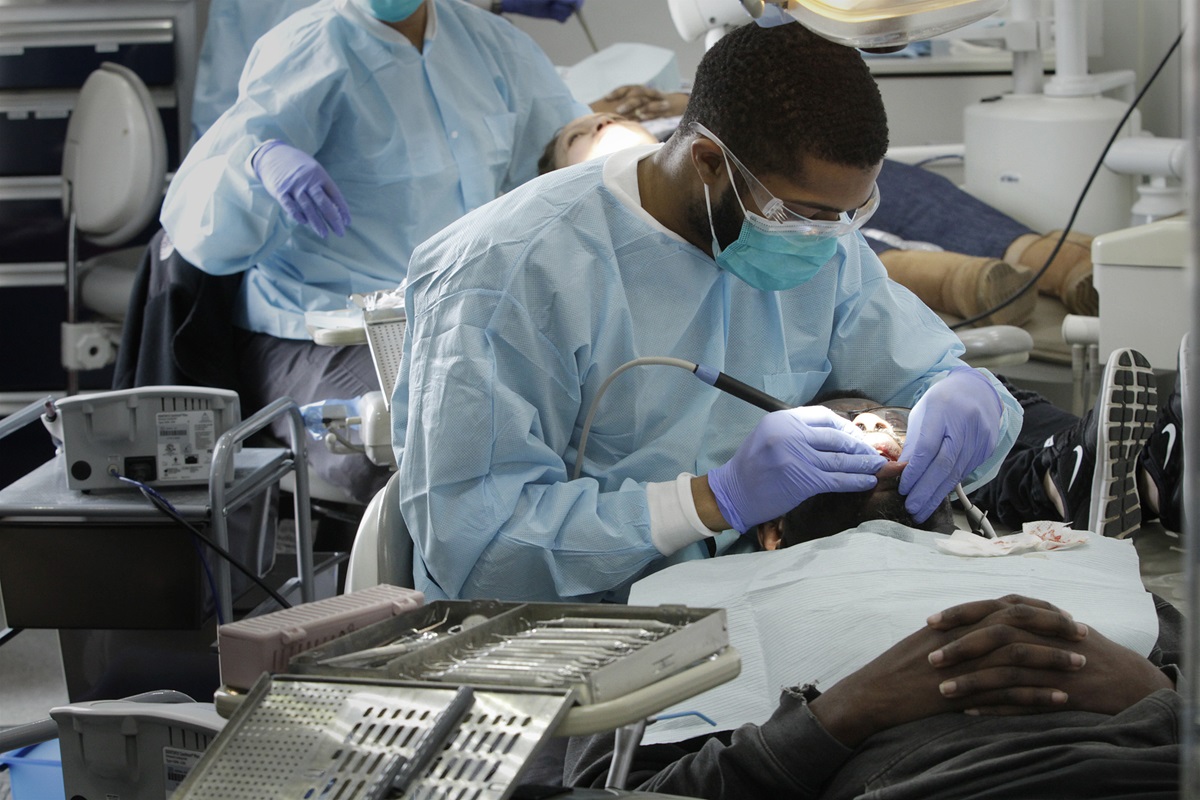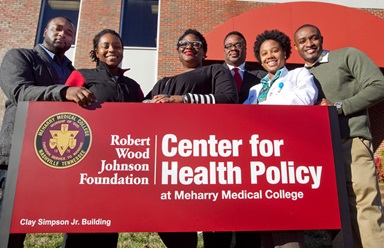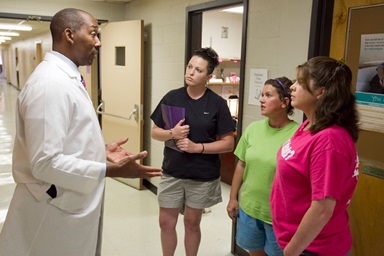A mobile dental clinic purchased with a $300,000 grant from the Black College Fund has allowed Meharry Medical College students to provide care in underserved areas.
“We look at areas where there are health professional shortages,” said Dr. Walter Owens, associate dean for development and external affairs at the School of Dentistry at Meharry Medical College. Meharry is one of the 11 historically black colleges and universities supported by the Black College Fund of The United Methodist Church.
“We don’t want to disrupt areas where there are service providers. We are providing a needed service — not a redundant service,” said Owens, who is the supervising faculty member of the clinic.
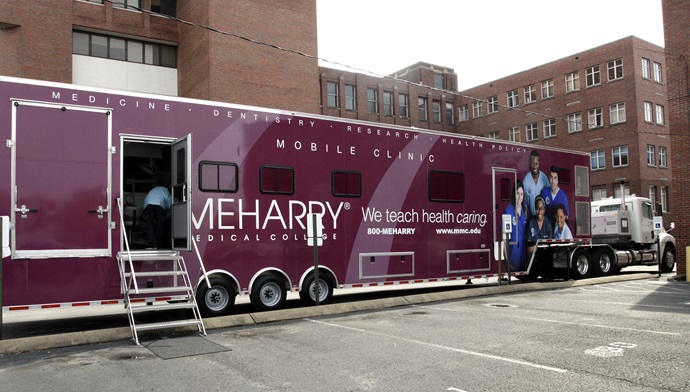
The Meharry Medical College mobile dental clinic allows supervised student dentists to provide care in underserved areas. Photo courtesy of Meharry Medical College.
The mobile clinic is one of the largest providers of services to youth in state custody, Owens said. “The young people could be in foster care or may have legal infractions or some in could be in the middle of an adjudication.” Care is provided under contracts with non-profits and private agencies. Meharry didn’t provide any statistics about the number of patients.
The mobile clinic’s recent visits to Columbia, Tennessee, brought dental care to children and teens who otherwise would have gone without, said Matthew R. Lee, a School of Dentistry student.
“We provide full service for the children — extensive cleanings and a few fillings,” said Lee, a senior at the dental school. “If we weren’t there, there would be a deficit for that population.”
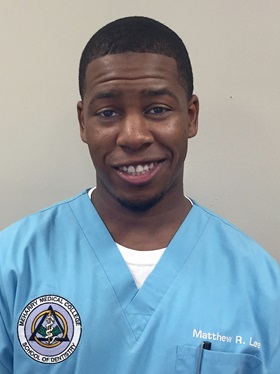
Matthew R. Lee is a senior dental student at Meharry Medical College. Photo by Sandra Long Weaver.
Lee said his work at the clinic has inspired him.
“They were easier than some of the adults. And they were excited to see us,” he said. “Who gets excited to see the dentist?”
He also said the clinic helps people know how to care for their teeth.
“A lot of people take for granted that someone taught them how to brush their teeth,” Lee said. “These children just made it up and they can take better care if they learn the proper techniques.”
Cynthia A. Bond Hopson, executive director of the Black College Fund and Ethnic Concerns at the United Methodist Board of Higher Education and Ministry, said the mobile clinic allows United Methodists who have supported the Black College Fund to see the good the fund does.
“It’s one of the things where people can actually see where their money goes,” she said.
The Black College Fund grant allowed the purchase of the mobile unit from the Elgin Children’s Foundation, a religious nonprofit organization.
Owens said the center sold the mobile clinic to Meharry at a special price because the mission of their organization aligned with Meharry’s mission to serve the most vulnerable in society.
“The need is so great; there are so many communities that don’t have dental services,” Bond Hopson said. “In addition to doing good ministry, the mobile unit can go places. It can take the dentist to the people rather than the people to the dentist.”
LEARN MORE
Learn more about the Black College Fund, which supports 11 historically black colleges and universities affiliated with The United Methodist Church.
Owens said the services are not free but are fee-based and are at a reduced cost for patients, although Meharry officials didn’t specify the costs. “We are always looking for sponsorships to provide uncompensated care,” Owens added.
“We are pleased and excited to be able to offer our mobile services to the communities throughout Tennessee. This allows us to reach the underserved populations across the state, which is in keeping with our mission, to provide quality and affordable oral health services to those who need it most,” said Dr. Cherae Farmer-Dixon, dean of the School of Dentistry at Meharry.
The Meharry students who provide care for patients are juniors and seniors. Owens said the students compete for the opportunity.
“They will see a good number of patients and that will be helpful to them in their professional development,” he said.
Owens said the students see an average of 25 to 30 patients at each stop. The clinic travels for two or three days each week across the state. There are four dental chairs, an X-ray lab and an office in the clinic.
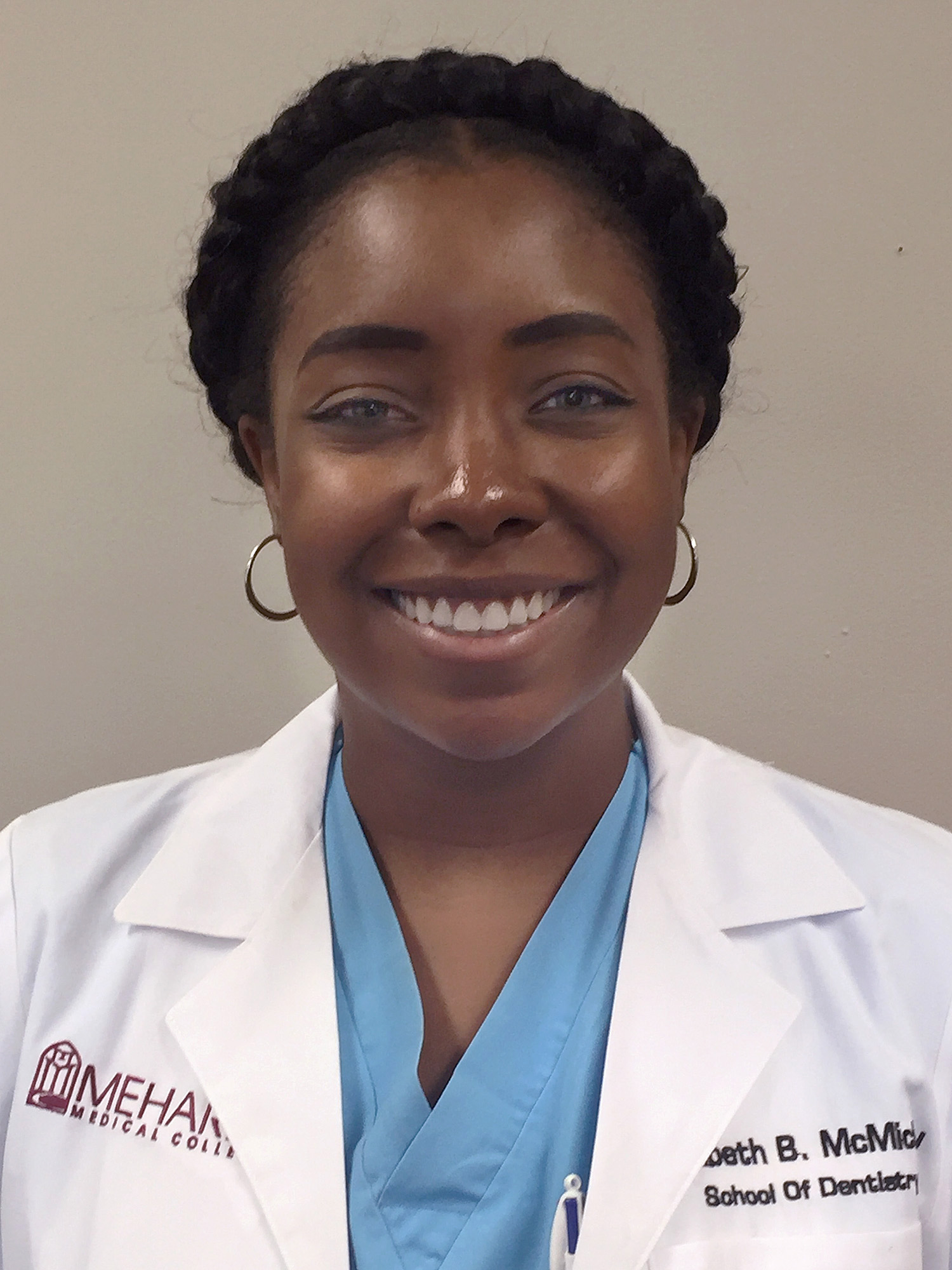
Elizabeth B. McMichael is a senior dental student at Meharry Medical College. Photo by Sandra Long Weaver.
He said they started with a voluntary rotation after launching the clinic on Feb. 7, but working in the clinic will become a requirement for students in the fall semester.
Elizabeth B. McMichael, a senior, helped set up the clinic before the February launch.
“We went to Knoxville to pick it up and worked with the dental assistants employed here to put our touch on it,” she said.
McMichael also worked in the clinic in May in Nashville with at-risk children. Most of the children she treated had never seen a dentist, she said.
One child couldn’t remember the last time she had brushed her teeth because she had lost her toothbrush. “The clinic is very practical,” McMichael said. “It makes sense. They can’t come to the clinic here so to be able to travel a few miles to help people is nice.”
Dental services will eventually be expanded to senior citizens who have economic challenges, Owens said. Meharry is also developing a plan to add other services such as vision and immunization and perhaps expanding to more mobile clinics.
“It is a challenge keeping up with the demand we have and the requests for services,” Owens said. “When a service becomes a familiar service and you build trust, the service can be more effective.”
Long Weaver is a freelancer writer, editor and journalism professor in the Nashville, Tennessee area. Media contact: Vicki Brown at 615-742-5470 ornewsdesk@umcom.org. To read more United Methodist news, subscribe to the free Daily or Weekly Digests.
Like what you're reading? Support the ministry of UM News! Your support ensures the latest denominational news, dynamic stories and informative articles will continue to connect our global community. Make a tax-deductible donation at ResourceUMC.org/GiveUMCom.

